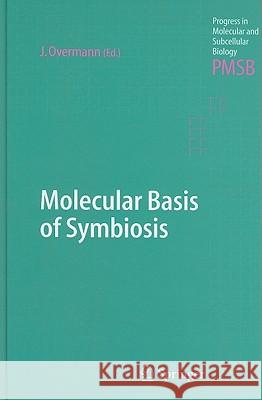Molecular Basis of Symbiosis » książka
Molecular Basis of Symbiosis
ISBN-13: 9783540282105 / Angielski / Twarda / 2006 / 310 str.
Symbiotic associations involving prokaryotes occur ubiquitously and are ecologically highly significant. In symbiotic associations, co-evolution of the partner organisms has led to specific mechanisms of signal exchange and reciprocal regulation, and resulted in novel physiological capabilities of the association as compared to those of the individual partners. Symbiosis research has recently entered an exciting era because molecular biology techniques are available for studying partner organisms in association and in a culture-independent manner. It is the goal of this book to contribute towards a broader perspective and an understanding of the function of symbiotic systems. 14 different model systems have been chosen, comprising well known symbioses as well as novel experimental systems which have only recently become amenable to experimental manipulation.











